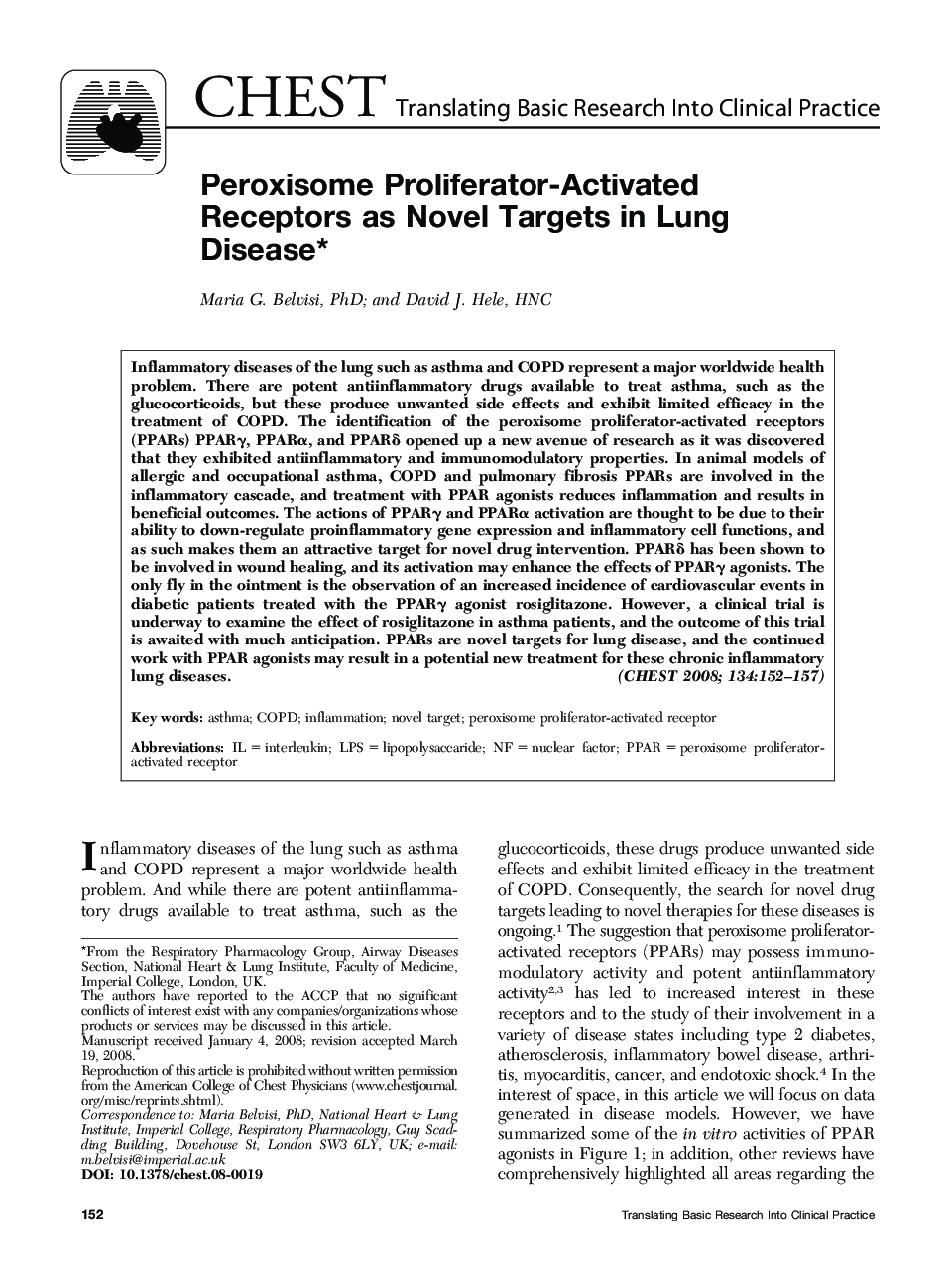| Article ID | Journal | Published Year | Pages | File Type |
|---|---|---|---|---|
| 2903267 | Chest | 2008 | 6 Pages |
Inflammatory diseases of the lung such as asthma and COPD represent a major worldwide health problem. There are potent antiinflammatory drugs available to treat asthma, such as the glucocorticoids, but these produce unwanted side effects and exhibit limited efficacy in the treatment of COPD. The identification of the peroxisome proliferator-activated receptors (PPARs) PPARγ, PPARα, and PPARδ opened up a new avenue of research as it was discovered that they exhibited antiinflammatory and immunomodulatory properties. In animal models of allergic and occupational asthma, COPD and pulmonary fibrosis PPARs are involved in the inflammatory cascade, and treatment with PPAR agonists reduces inflammation and results in beneficial outcomes. The actions of PPARγ and PPARα activation are thought to be due to their ability to down-regulate proinflammatory gene expression and inflammatory cell functions, and as such makes them an attractive target for novel drug intervention. PPARδ has been shown to be involved in wound healing, and its activation may enhance the effects of PPARγ agonists. The only fly in the ointment is the observation of an increased incidence of cardiovascular events in diabetic patients treated with the PPARγ agonist rosiglitazone. However, a clinical trial is underway to examine the effect of rosiglitazone in asthma patients, and the outcome of this trial is awaited with much anticipation. PPARs are novel targets for lung disease, and the continued work with PPAR agonists may result in a potential new treatment for these chronic inflammatory lung diseases.
